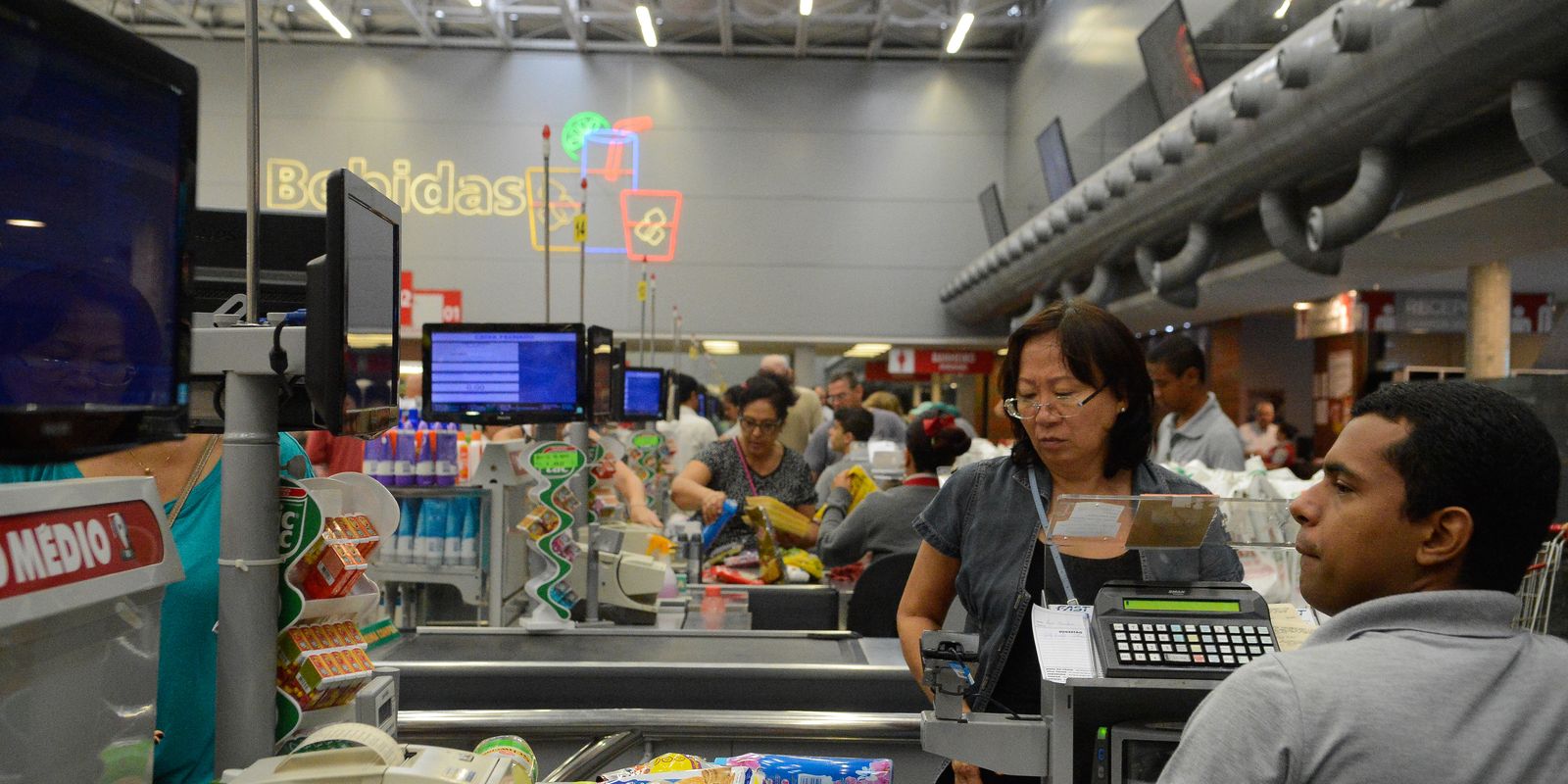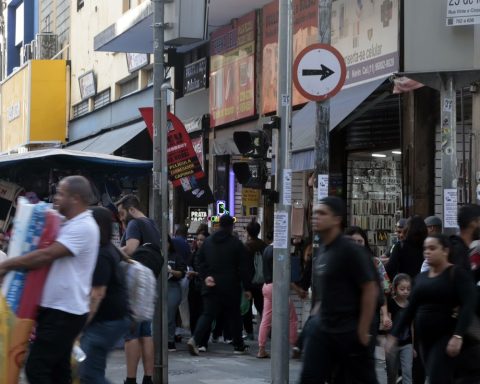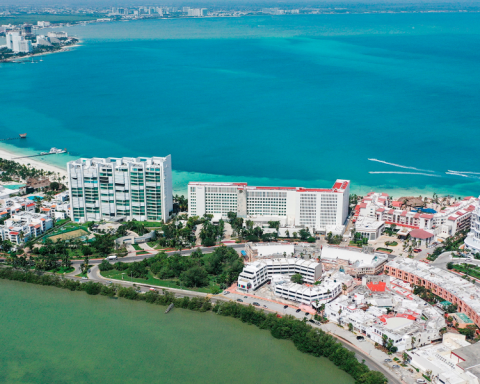The Household Consumption Intention Index (ICF), released this Thursday (18) by the National Confederation of Trade in Goods, Services and Tourism (CNC), showed a 0.2% drop in July, discounting seasonal effects. The worsening of the current job market, a situation also expected for the coming months, was what determined the decline. 
This is the first negative result since April, when the ICF was showing growth, which occurred until June.
The annual analysis also records a decline in consumption intentions. According to the CNC, although it grew 2.3% in 12 months, this was the lowest growth in the index since June 2021. “This shows that in the accumulated view it is growing, but growing less, that is, this optimism is slowing down,” CNC chief economist Felipe Tavares told Agência Brasil.
According to him, until now, the booming job market had been contributing to the positive ICF result. “The entire stock of workers that you had available in the economy is starting to run out. And, with that, people start to feel their optimism about the dynamics of the job market diminish a little, they start to see fewer hires happening, they see salaries stabilizing and this tends to result in people’s confidence in consumers decreasing because they feel the job market is more competitive.”
Perspectives
The ICF is calculated based on seven indicators: three refer to current employment, income and consumption prospects; two measure professional prospects in the medium and long term and future consumption planning. It also measures how consumers feel about access to credit and whether they think it is a good time or not to purchase more expensive durable goods.
Felipe Tavares explained that both the professional outlook and current employment are greatly affected by the economy as a whole, especially the outlook, which is the vision for the future. “This future outlook was the one that had the worst variation in the annual comparison: a drop of 7.6%. In other words, consumers are starting to become more concerned about what the future will be like in relation to their jobs and the job market as a whole.”
The consumption aspect follows this trend. “Consumption depends on two main things. One is income and the other is credit, even more than income, because most people use credit cards on a daily basis. This has been growing a lot. And when you feel greater macroeconomic instability that can affect your income, or you start to have greater difficulty obtaining credit in the market, you start to reduce your intention to consume goods.”
According to the ICF, current consumption fell by 0.4% and the consumption outlook fell by 0.6%. “Both fell and the perception of access to credit also fell (0.6%). The important point to note is that, in terms of access to credit, the indicator is below 100, at 92.4, which means that it is on the pessimistic spectrum: there are more people feeling more pessimistic than more optimistic,” explained the senior economist at CNC.
Genres
The July ICF showed that the intention to consume showed a monthly drop in both genders, with greater intensity among women (-0.8%) than among men (-0.5%). Felipe Tavares highlighted that, currently, there are also many more women who are homemakers. “This is a curious indicator that is worth highlighting: that women have had their consumer confidence shaken more than men. Another factor is that women need to be more cautious because, unfortunately, we know that there is a factor of machismo in the job market. When there is a sign of possible turbulence there, the weight on women’s feelings is greater than that of men, simply because they know that it is more difficult for them.”
Regarding current employment, the IFC reveals that, for men, the reduction was 0.7%, against -1.1% for women, which attests that the challenge is greater for women. This perception is repeated with regard to professional perspectives, with a 2% drop in women’s perception and a 0.4% drop for men.
Rio Grande do Sul
The July ICF also includes a special section on consumer intentions in Rio Grande do Sul, following the climate disaster that hit much of that state this year. Felipe Tavares explained that the CNC consumer intention indicator is a good measure of consumer confidence. If consumers are optimistic, the ICF increases, families are more euphoric and more likely to want to consume.
In the case of Rio Grande do Sul, it was found that the tragedy had a major impact on consumer confidence, so much so that all indicators fell significantly in both the monthly and annual variations. In the monthly variation, there was a 4% drop, after a 4.7% drop in the previous month.
“And our entire confidence indicator is below 100, at 57.6. This shows that the tragedy had a huge effect on people’s psychology and not just on consumption levels, which obviously fell due to the tragedy. But the outlook and sentiment are very shaken.”
The professional outlook in the state, as a result, had the worst sub-indicator (-8.4%) and the indicator level is at 19.4%. “The tragedy somewhat destroyed the dream of a layer of consumers”, pointed out Tavares.

















